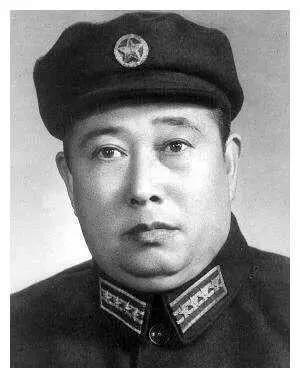The history of the Chinese revolution is a history full of blood and tears, and in those bloody and rainy war years, there were countless revolutionary martyrs who spilled their blood on the battlefield and sacrificed their precious lives, and they did not see the founding of New China. However, those generals who survived and made outstanding military achievements on the battlefield were awarded corresponding ranks after the founding of the country, becoming the founding merits of the republic, and General Xiong Yingtang was awarded the founding major general for his merits.

Xiong Yingtang was born in 1911 in Hong'an County, Hubei Province, the birthplace of the Jute Uprising. When General Xiong Yingtang was very young, he went to the landlord's house to work as a long-term worker, and in order to earn a living, he also learned the craft of a barber, and suffered from hunger and cold. When he was 17 years old, the revolutionary team came to his hometown to recruit soldiers, and Xiong Yingtang resolutely and resolutely picked a haircut to join the army.
After enlisting, Xiong Yingtang only gave haircuts to the soldiers at first, and later in the battle of dashanzhai, after he captured a gun from the enemy with his bare hands, he also rushed to the battlefield without fear, and from then on began his career as a horseman.
During the period of the Agrarian Revolutionary War, he participated in four anti-encirclement and suppression battles, and also participated in the world-famous 25,000-mile Long March, especially in the creation of the revolutionary base areas in Sichuan and northern Shaanxi. After the victory of the Red Army in northern Shaanxi, Xiong Yingtang was recommended by his superiors to study at kang da and was promoted to regimental commander.
During the War of Resistance Against Japanese Aggression, Xiong Yingtang heroically resisted the Japanese army in the area of Xiaodanyang in Jiangsu Province, and when he participated in the command of the anti-sweeping battle in southern Anhui, he conquered Jing County in the first battle and dealt a fierce blow to the Japanese invaders. In 1941, when the enemy army planned the suppression of southern Anhui that shocked the whole country, Xiong Yingtang responded to changes and led his troops to bravely fight to the death, rush left and right, and resolutely preserve the revolutionary flame for the organization.
During the Liberation War, Xiong Yingtang was promoted to deputy commander to lead his troops to attack Shandong due to his outstanding achievements, and later transferred to Jiangsu and made countless military achievements. During the liberation of the Huaihai region, under the command of General Su Yu, he created a miracle of annihilating 600,000 enemy troops in World War I and made great contributions to the liberation of all of China.
After the founding of New China, Xiong Yingtang served as secretary of the Zhejiang Provincial CPC Committee, and although he held a high and powerful position, he always maintained the fine tradition of hardship and simplicity, was diligent and thrifty, never extravagant and wasteful, and showed the fine work style of an old revolutionary and an old general.
However, the two sons of the old general lived an extremely corrupt life and went to the road of no return. General Xiong had two sons, one named Xiong Beiping and the other xiong ziping, and was a pair of twin sons. After the birth of these sons, because General Xiong had been busy with military affairs for many years and neglected to discipline them, the burden of the family fell on Lady Xiong.
As the saying goes, "A loving mother has many losers", this famous saying from ancient times, has been confirmed here. Madame Xiong loved these two sons very much, doted on them excessively, and lived the life of a young master who opened her mouth and stretched out her hands with food. Later, he was even more arbitrary, not only scolding his classmates at school, but also disrespecting the teacher. When General Xiong found out that something was wrong with his son and was preparing to send his sons to the army for training, it was too late.
In the 1970s, when General Xiong Yingtang left Zhejiang and was transferred to Sichuan to participate in work, his two sons were even more unscrupulous in Zhejiang, not only using pits and deception to defile many women, but also wantonly bullying and exploiting the local people, causing the people to boil over, becoming a scourge on the one side, and finally being arrested by the public security and reported to the senior leaders at higher levels.
When the news of the arrest of the two sons quickly reached Xiong Yingtang's ears, this old general, who was a clean official and had a clean sleeve, suddenly turned blue in the face, ignored his wife's bitter pleas, and directly said that he would never interfere in accordance with the law, and also sternly ordered his family not to intercede.
After hearing about Father Yan's attitude, the attitude of the original arrogant Xiong family brothers also changed at this time, and the eldest brother Xiong Beiping, under the interrogation of the public security, began to truthfully confess his crimes, hoping to wear the guilt and make meritorious contributions and get the opportunity to be sent down lightly. However, his younger brother Xiong Ziping refused to admit guilt, and his attitude was bad, and there were many disrespectful words between his words.
As a result, the two brothers' different confession attitudes also determined their completely different endings. In 1979, a public trial meeting of 10,000 people was held in Hangzhou, and the elder brother Xiong Beiping was sentenced to suspended death, while the younger brother Xiong Ziping was sentenced to death and executed immediately.